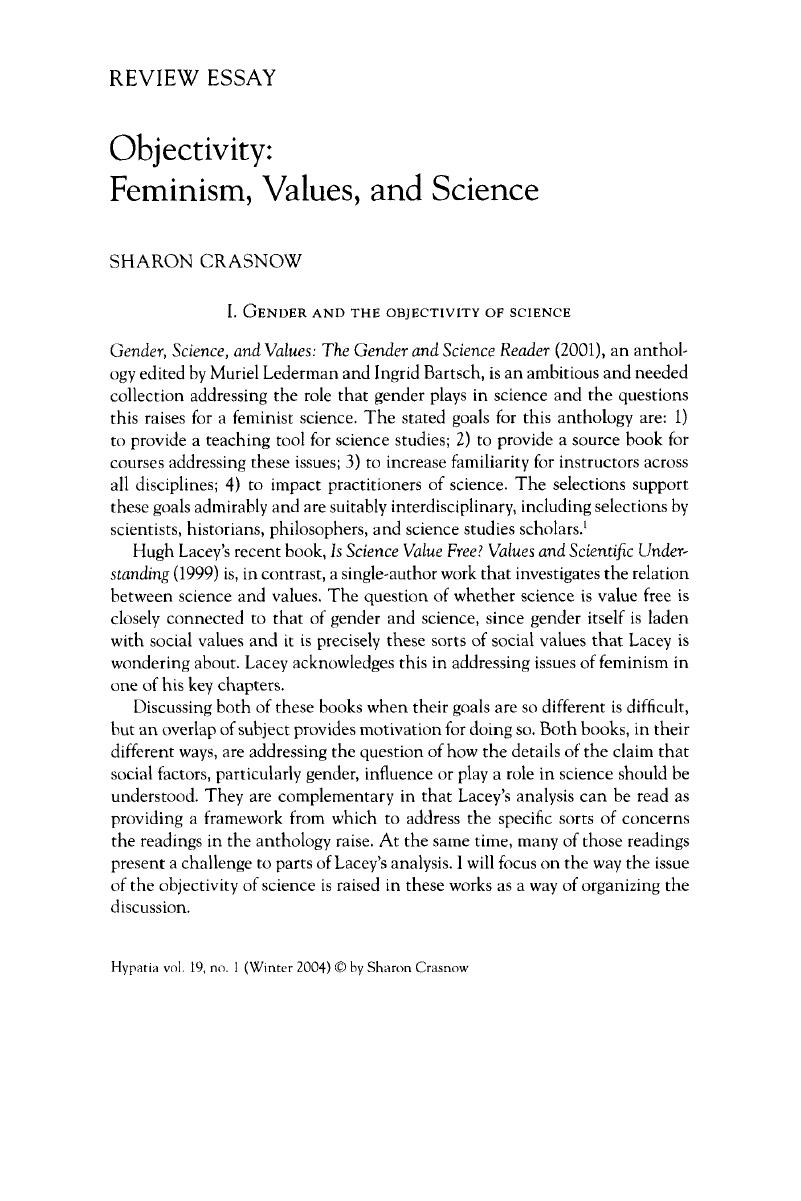No CrossRef data available.
Article contents
Objectivity: Feminism, Values, and Science
Published online by Cambridge University Press: 25 March 2020
Abstract
An abstract is not available for this content so a preview has been provided. Please use the Get access link above for information on how to access this content.

- Type
- Review Essay
- Information
- Hypatia , Volume 19 , Issue 1: Special Issue: Feminist Science Studies , Winter 2004 , pp. 280 - 291
- Copyright
- Copyright © 2004 by Hypatia, Inc.
References
Belenky, Mary Field, McVicker Clinchy, Blythe, Rule Goldberger, Nancy, and Mat‐tuck Tarule, Jill. 1986. Women's ways of knowing: The development of self, voice, and mind. New York: Basic Books.Google Scholar
Cartwright, Nancy. 1983. How the laws of physics lie. Oxford: Oxford University Press.CrossRefGoogle Scholar
Crasnow, Sharon L. 2001. Models and reality: When science tackles sex. Hypatia 16(3): 138–48.CrossRefGoogle Scholar
Giere, Ron. 1988. Explaining science: A cognitive approach. Chicago: University of Chicago Press.CrossRefGoogle Scholar
Keller, Evelyn Fox. 1985. Reflections on gender and science. New Haven: Yale University Press.Google Scholar
Lacey, Hugh. 1999. Is science value free? Values and scientific understanding. London: Routledge.Google Scholar
Lederman, Muriel, and Bartsch, Ingrid, eds. 2001. The gender and science reader. London: Routledge.Google Scholar
Longino, Helen. 1996. Cognitive and non‐cognitive values in science: Rethinking the dichotomy. in Nelson, L.H. and Nelson, J., eds. Feminism, science, and the philosophy of science. Dordrecht: Kluwer Academic Press.Google Scholar


